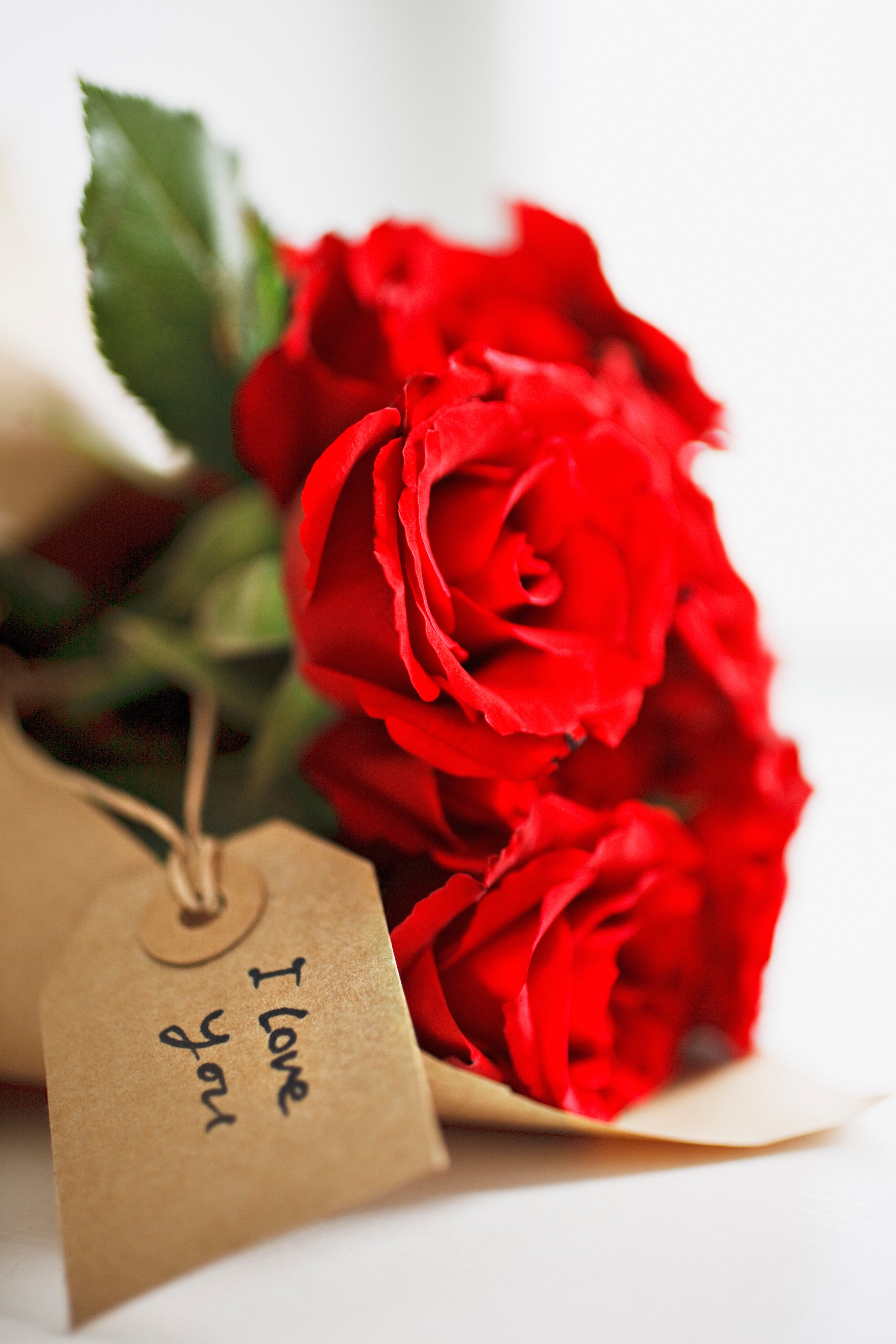
Kaplan is the author of many popular books including the New York Times bestseller The Gratitude Diaries and her new book What Your Body Knows About Happiness. She is the former editor-in-chief of Parade magazine
When we first got married, I told my husband I wanted to celebrate Valentine’s Day on February 15th, when flowers and chocolates went on sale. Maybe you can’t put a price on love, but $39.95 for a dozen stems seemed too high. Why pay jacked up prices when we could have our own romantic day anytime we chose?
My husband immediately got in the spirit, and every year since then, he’s brought me the nicest roses discounts can buy. Love always seems lovelier to me at half-price the next day.
This year on February 14th while other couples are at restaurants having overpriced champagne, Ron and I are going to cuddle on the couch and simply say nice things to each other. This time I’m not being frugal—we have research behind us. Because it turns out that despite all the efforts to impress on V-Day, simply appreciating each other does more for a relationship than almost anything else.
“We all know we love our partners, but to spend five minutes a day focused on them seems extravagant,” said Dr. Brent Atkinson, director of post-graduate training at the Couples Clinic and Research Institute in Geneva, Illinois.
But those five minutes are just what most of us really want. (Sorry, Victoria’s Secret.) In a national survey that I oversaw for the John Templeton Foundation, we asked men and women what their spouses did that made them grateful. For women, #1 on the list wasn’t flowers or gifts or a special night out—but a guy who listened to them. Some 93 percent of women felt gratitude for that—higher than anything else.
Men answering same question were just so-so on flowers and nights out, but 97 percent agreed about what made them feel the most gratitude. They were happy when a partner expressed love and affection.
In follow-up interviews, women explained that wanting a man to listen meant exactly that. Just listen. No need to solve a problem, find a solution or make life better. Just be there and be supportive. Men essentially asked for the same when they said they were grateful for expressions of affection. We all want to know that someone hears and appreciates us.
So how easy is this? Men want to be loved. Women want to be heard. A Valentine’s eve (whatever calendar day you pick) spent talking, appreciating and canoodling on the couch (TV off) is going to make everyone happy. And it’s not that hard to extend beyond Valentine’s Day, either.
For a new book I’m writing on gratitude, I spent a year trying to be more grateful—and I started with my husband. Using the results of that survey, I realized the best way to improve our marriage might simply be to appreciate him more.
Dr. Atkinson suggested I try what he called “the relentless pursuit of positivity.” So for a full month, I found a reason to say thank you to my husband at least once a day. I commented on the positives instead of the problems. And I regularly told Ron why I appreciated him.
At first it seemed a little—well, awkward. But Ron started to notice the positive vibe and he returned the favor. Comments like “Thanks for thinking of that!” and “You’re the best!” and “I so appreciate your help!” got tossed around our house like super-inflated footballs.
According to Dr. Atkinson, being grateful and loving can actually change brain circuits involved in emotional reaction. By focusing on positive feelings toward a partner, we can rewire our automatic responses and create stronger feelings of connection. When Ron and I spent a month being consciously grateful, the neural circuits had enough practice that the habit formed and the responses started to come naturally.
If you need some help in the gratitude game, Dr. Atkinson suggested a sentence completion email. For Valentine’s Day—or any other day—send your partner a note that starts:
One thing you did lately that I appreciated was….
And then go wild and add a second line:
One moment when I felt extra positive about you was….
You don’t have to come up with something big. Simply noticing the small things your partner does daily, whether it’s shopping for groceries or driving in the snow, is enough to change those neural circuits.
Gratitude goes both ways. Saying thank you to a partner isn’t ceding power or becoming dependent—it’s just a way of improving your relationship. Being positive and finding the good in each other is really the best gift you can give on Valentine’s Day.
Whichever day you celebrate it.
More Must-Reads from TIME
- Cybersecurity Experts Are Sounding the Alarm on DOGE
- Meet the 2025 Women of the Year
- The Harsh Truth About Disability Inclusion
- Why Do More Young Adults Have Cancer?
- Colman Domingo Leads With Radical Love
- How to Get Better at Doing Things Alone
- Michelle Zauner Stares Down the Darkness
Contact us at letters@time.com